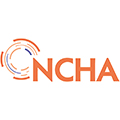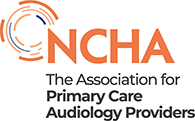02 July 2021
NCHA member update – 2 July
This week:
- BSO guidance on wax management during the pandemic
- Mandating Covid-19 vaccinations in care home settings - England
- Covid-19 vaccination update
- Deaf charities have welcomed making 999 more accessible
- NCHA and FODO respond to government's regulatory reform consultation
- Update on NHS reforms in England
- Other sector news
BSO guidance on wax management during the pandemic
Following a further review of the evidence and taking account of progress made with vaccinating a large proportion of the population, the BSO has updated its guidance on wax management during the pandemic.
It now recommends "micro-suction can be safely performed in outpatients, even in the presence of a tympanic membrane perforation or middle ear infection, irrespective of whether the suction tip is fenestrated or not". However, clinicians should continue to adhere to strict IPC measures. Read the full statement.
Mandating Covid-19 vaccinations in care home settings - England
Following its consultation on whether to mandate Covid-19 vaccinations for staff in care home settings, the government has concluded that, in England, it will require any professional visiting a care home to be vaccinated.
The stipulation will apply to healthcare workers but will exclude those with medical exemptions. It also excludes anyone entering to assist with an emergency or carry out urgent maintenance work and those under 18 years of age.
To mitigate the risk of staff shortages, the government said it had included a 16-week grace period, providing time for people to receive both vaccination doses.
The government has also said it will provide more support to key members of the workforce who might be "more vaccine-hesitant", including women of childbearing age, people from BAME groups and those with concerns about the vaccine based on religion or belief.
To address concerns about accidental breaches of data protection law, the government said it has "inserted a provision in the regulations so that a service provider may process information provided by a person wanting to prove their vaccination status, in accordance with the Data Protection Act 2018".
At this stage, we advise all members who provide domiciliary care to read the government's proposals and contact us directly if you have any questions by emailing [email protected].
The UK JCVI is now assessing who to prioritise for the third dose of a Covid vaccine. The JCVI will determine whether millions of vulnerable people should be offered a booster vaccine from September.
The interim guidance advises the NHS to plan for a two-stage Covid-19 vaccination booster in September run alongside the annual flu vaccination programme. The interim guidance states:
Stage 1. The following people should be offered a third dose Covid-19 booster vaccine and the yearly influenza vaccine as soon as possible from September 2021:
- Adults aged 16 years and over who are immunosuppressed
- Those living in residential care homes for older adults
- All adults aged 70 years or over
- Adults aged 16 years and over who are considered clinically extremely vulnerable
- Frontline health and social care workers.
Stage 2. The following people should be offered a third Covid-19 booster vaccine as soon as practicable after stage 1 with equal emphasis on the influenza vaccine's deployment where eligible:
- All adults aged 50 years and over
- All adults aged 16 to 49 years who are in an influenza or Covid-19 at-risk group as outlined in the Green Book
- Adult household contacts of immunosuppressed individuals.
The final guidance is expected in September. Read more.
Deaf charities have welcomed making 999 more accessible
Charities have welcomed telecoms regulator Ofcom's decision to compel telecoms providers to offer customers 24/7 access to the emergency service via a video relay service. Ofcom has estimated that the service will save at least two lives a year. Learn more.
NCHA and FODO respond to government's regulatory reform consultation
The NCHA and FODO have submitted a joint response to the Department of Health and Social Care's consultation: Regulating healthcare professionals, protecting the public. Read our response.
Update on NHS reforms in England
NHS England has now published its Integrated Care Systems (ICSs): Design framework.
It follows previous consultations, including the White Paper 'Working Together to improve health and social care for all' in February, which proposed fundamental changes to how NHS care is commissioned in England. The proposals included replacing CCGs with ICSs and making significant changes to procurement regulations.
The framework sets out NHS England's expectations for the next phase of reforms, with "the anticipated establishment of statutory ICS NHS bodies from April 2022".
As detailed in the White Paper, the forthcoming Health and Care Bill will define "a high-level legislative framework" rather than "bring forward detailed or prescriptive legislation on how [ICSs] Partnerships should operate".
Last week, NHS England noted that the new Health and Social Care Bill was expected "imminently" and it would be "the most significant NHS primary legislation for a decade". However, a week on, and with Sajid Javid appointed as the new Secretary of State for Health and Social Care, there have been reports that No. 10 remains unconvinced of the Bill in its current form.
According to the HSJ, there are concerns about key elements of planned reforms, including new powers for the Secretary of State and boundary changes.
We will keep you informed on significant developments throughout this process, but meanwhile, if you have any questions, please email [email protected].
- Disabled needs forgotten during Covid, BBC research reveals
- FDA sets out plans to progress with establishing OTC category of hearing aid
- BIHIMA - hearing care in a post-pandemic world
- Philips pilots hearing aid leasing scheme
- The blocked ear and the pandemic - an audiologist's reflections
- Precision and personalised genomic and epigenomic medicine in audiology/hearing loss

Press enquiries
Media enquiries should be directed to [email protected] or call 020 7298 5110.
We are happy to put you in touch with our expert policy advisers who can comment on a variety of issues.
You can also follow us on Twitter and LinkedIn.

 Your hearing and aural health
Your hearing and aural health  Commissioners and Policymakers
Commissioners and Policymakers  Member support and guidance
Member support and guidance News and views
News and views
 Hearing map
Hearing map
